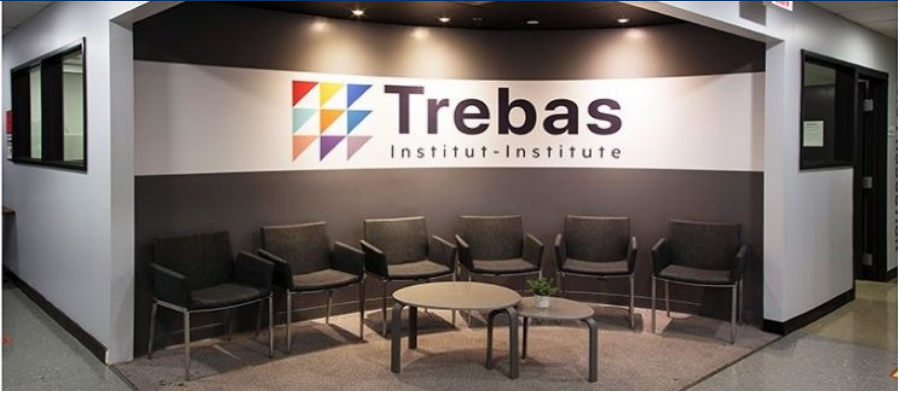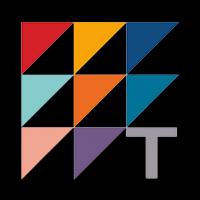Diploma in LEA.DT: Analytics, Big Data and Business Intelligence
The rapid technological advances of recent years now require new expertise and skills. To be able to establish themselves in a competitive ecosystem, companies can now base their business strategies on big data and technologies derived from artificial intelligence research (Blockchain, Complex Systems, Scale Automation, etc.).
Upon completion of their training, the student will be able to set up networked and automated databases, operate data warehouses, perform fine analyses and produce detailed reports. This essential work will give a competitive advantage.
The Trebas Institute’s Analytics, Big Data, and Business Intelligence program will give you the tools and knowledge you need to help create value for the company you work with.
Become highly proficient in analytics, BI, and big data. Study using industry-standard software programs and online platforms, within a curriculum that is constantly updated to give you an edge in the job market.
Campus Information
Montreal
Trebas Institute is located in the heart of Montreal, a cultural metropolis in North America.
Intakes
- Jan
- April
- July
- Sep
Application Processing Time in Days: 20
Minimum English Language Requirements
| English Level Description | IELTS (1.0 -9.0) | TOEFL IBT (0-120) | TOEFL CBT (0-300) | PTE (10-90) | |
|---|---|---|---|---|---|
| Expert | 9 | 120 | 297-300 | 86-90 | |
| Very Good | 8.5 | 115-119 | 280-293 | 83-86 | |
| Very Good | 8 | 110-114 | 270-280 | 79-83 | |
| Good | 7.5 | 102-109 | 253-267 | 73-79 | |
| Good | 7 | 94-101 | 240-253 | 65-73 | |
| Competent | 6.5 | 79-93 | 213-233 | 58-65 | |
| Competent | 6 | 60-78 | 170-210 | 50-58 | |
| Modest | 5.5 | 46-59 | 133-210 | 43-50 | |
| Modest | 5 | 35-45 | 107-133 | 36-43 | |
| Limited | 4 | 32-34 | 97-103 | 30-36 | |
| Extremely Limited | < 4 | < 31 | < 93 | < 30 |
Job Opportunity Potential
Our graduates will be able to pursue successful careers in the following roles:
database administrator
data dictionary administrator
data administrator
database analyst
data analyst / computer and systems
data repository analyst
data mining analyst
information resources analyst
electronic data processing system analyst
electronic data processing analyst
database designer
data explorer
database manager - computer systems
data manager
computer specialist
database management supervisor / computer systems
PSW Opportunity
Eligibility for Post-Graduation Work Permit (PGWP):
Graduated from a designated learning institution (DLI) in Canada.
Desire to stay in Canada temporarily for work.
Important Note:
Graduating from a DLI doesn't automatically qualify you for a PGWP.
Validity of PGWP:
Depends on the length of the study program or the expiry date of your passport, whichever comes first.
Duration of PGWP Based on Study Program Length:
Less than 8 months (or 900 hours for Quebec credentials): Not eligible for PGWP.
At least 8 months (or 900 hours for Quebec credentials), but less than 2 years: PGWP may be granted for the same length as the study program (e.g., a 9-month program results in a 9-month PGWP).
2 years or more: PGWP may be valid for 3 years.
Completion of Multiple Programs:
PGWP may combine the lengths of each program if:
Each program is PGWP eligible.
Each program is at least 8 months (or 900 hours for Quebec credentials) in length.
Important Restriction:
You cannot obtain a PGWP if you already had one after completing an earlier program of study.
Admission Requirement / Eligibility Criteria
Under the provisions of section 4 of the College Education Regulations concerning the conditions of admission, a person who has received instruction considered sufficient by the college and meets any of the following conditions may be admitted to a program of studies leading to an Attestation of College Studies:
The person holds a Secondary School Vocational Diploma.
The person has interrupted his or her full-time studies or pursued full-time postsecondary studies for at least 2 consecutive terms or 1 school year;
The person is covered by an agreement entered into between the college and an employer or by a government program of studies;
The person has interrupted his or her full-time studies for one term and pursued full-time postsecondary studies for one term; or
Specific admission criteria for an ACS/AEC
A person applying for an ACS/AEC program must have sufficient written and spoken proficiency in the language of instruction. A person who has studied outside of Quebec must provide the result of a proficiency test for the language of instruction.
For programs where the language of instruction of English, the language proficiency tests accepted are:
International English Language Testing System (IELTS): 5.5
IELTS for Bangladesh, Bhutan, India, Pakistan, Nepal, Sri Lanka, Afghanistan: 6.0 with 1 Band 5.5
Test of English as a Foreign Language (TOEFL) IBT: 55
Cambridge English Language Assessment: 162
Canadian Academic English Language (CAEL): 40
PTE Academic: 36
Duolingo: 105 for students from South Asia (India, Sri Lanka, Bangladesh, Afghanistan, Bhutan, Nepal, and Pakistan) and 95 for all other countries
For programs where the language of instruction is French, the following standardized tests are accepted:
Diplôme approfondi de langue française/Diplôme d’études en langue française (DELF)/(DALF): Levels B1
Test d’Évaluation du français adapte pour le Québec (TEFaQ): Levels B1
Test de connaissance du français pour le Québec (TCFQ): Levels B1
- Course Type: Full Time
- Course Level: Under Graduate Diploma or Certificate
- Duration: 02 Year
-
Total Tuition Fee:
32000 CAD
Average Cost of Living: 22895 CAD /year
Application Fee: N/A

